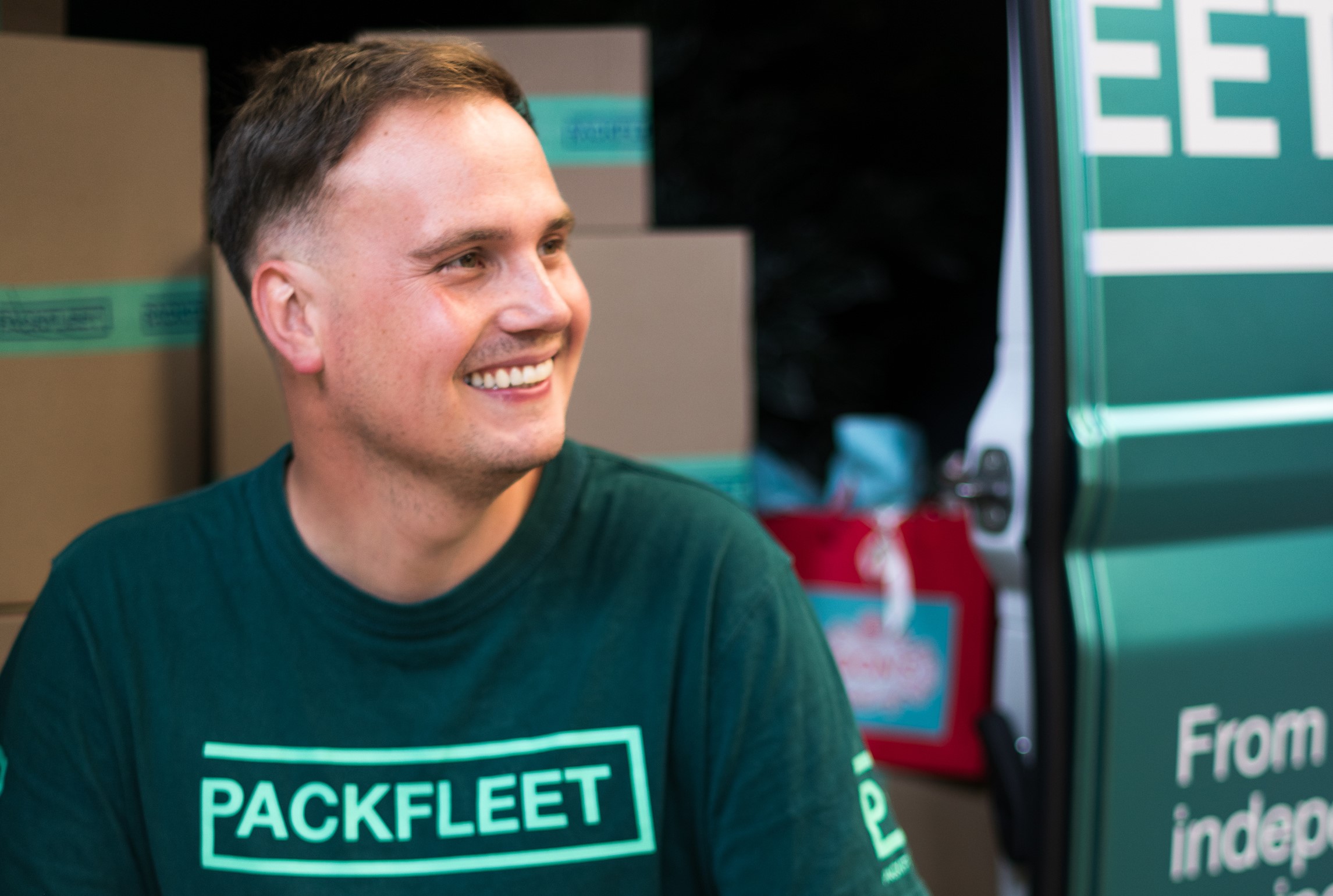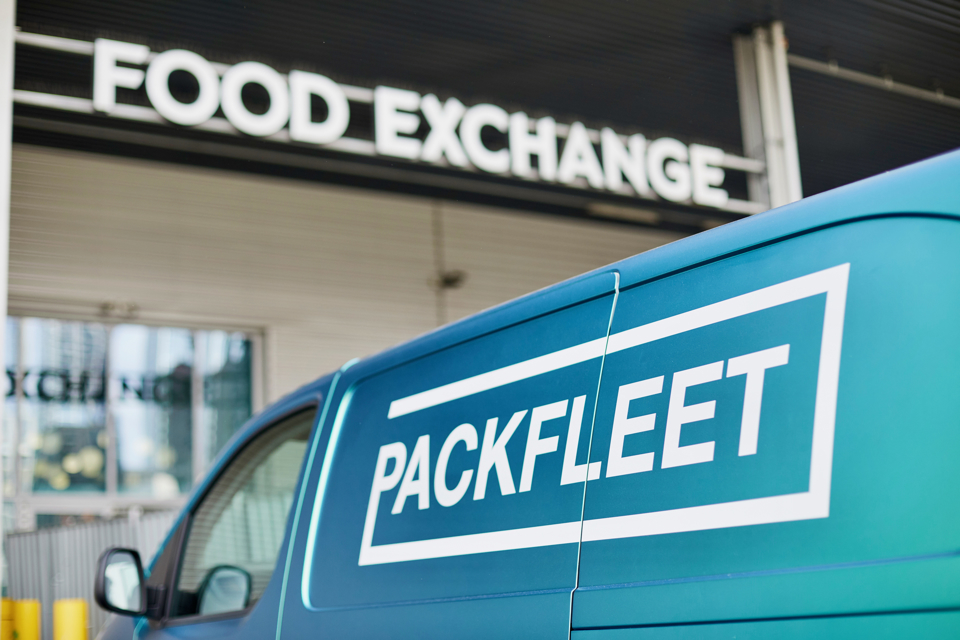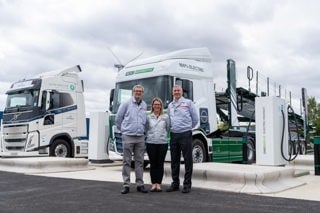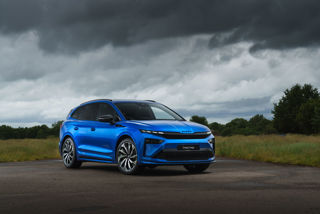Carbon-neutral parcel courier Packfleet has highlighted several challenges faced by operators that are proving problematic to electrifying their fleets.
Packfleet was launched in 2021 with an all-electric fleet of small and now medium sized vans, which is 130 vehicles strong.
Tristan Thomas, Packfleet chief executive and co-founder, told Fleet News that the last mile delivery specialist is facing challenges on multiple fronts, including charging, servicing, residual values (RVs) and procurement, that it is having to work around in order to continue to scale.
The business has plans to expand its concept outside of London to other cities in the UK later this year.
Thomas (pictured below) said: “Anyone who spends time in the logistics industry can see that things are not set up in the UK for businesses to switch to a 100% electric fleet.
“Sourcing vehicles is a key risk for the future. We are building scale and, while we don’t need to increase our electric van fleet by five times, in order to grow we are going to have to guarantee the supply of more vehicles. We can’t just fall back on adding a diesel van to fill the gap.
“Our fleet team is constantly thinking about how we’re able to scale up and expand with other manufacturers.”

A core concept for the B Corp certified business is that all last mile deliveries will need to be zero emissions in order to meet future net zero targets.
Brands like Who Gives A Crap, Pizza Pilgrims and HURR have all signed up with Packfleet for deliveries across the capital.
While Thomas says the business is able to be a bit more flexible where it gets vehicles from, he said getting hold of the number of vehicles required is still a challenge.
The company initially launched with 20 Maxus E Deliver 3s but has since expanded its fleet to Ford E-Transit, Peugeot e-Expert and Citroen e-Dispatch.
Any models will be considered, as long as they meet the company’s operational requirements.
Packfleet’s vehicles are split between outright ownership, lease and a portion are leased by self-employed drivers.
Thomas says launching in 2021 during the semiconductor shortage meant the company had to “scramble for any electric vans we could get our hands on”.
Availability and lead times have improved, but Thomas says procurement of electric vans is still a challenge.
Packfleet has a mix of directly employed drivers, drivers that are employed by third parties to help to scale with peak seasonality, as well as some self-employed owner drivers.
All future electric vans will be leased, after Thomas said the residual values on the ones it owns have not held up.
He explained: “The used electric van market is poor and one of the big problems is that battery technology is improving all the time, so you’re left with undesirable vehicles when you’re looking to replace them.”
To learn more about fleet procurement, click here.
Public charging ‘still very poor’
One of the biggest challenges facing Packfleet’s further expansion is public charging infrastructure.
While Thomas acknowledges that public charging within the M25 has improved since 2021, he still describes it as “poor”.
Packfleet has around 30 fast and rapid chargers at its main warehouse, but the majority of charging is done on the public network.
Charging sessions are closely incorporated into Packfleet’s Pathfinder route scheduling technology, with telematics data feeding back the most efficient route depending on traffic, time of day, weather, as well as battery and range information on each vehicle.
The goal is to minimise vehicle downtime as much as possible, with no unscheduled charge stops. Charging sessions are planned so they happen before or after a route.
If a charge is needed, Pathfinder will automatically guide drivers to their best charging solution.
Thomas said: “If you don’t do that, you end up with a cascading series of failures with drivers. They run out of charge or get low, or don’t have the experience to know how to solve it.”
Adding more rapid chargers at Packfleet’s London warehouse is not a scalable solution, so using the public networks, including rapid chargers, as well as planning around destination chargers for when vehicles are not on a scheduled route, is a must.
Thomas says off-street charging at home is great, but he said that for the majority of people in London and other urban centres, public charging challenges have not been solved.
However, Thomas highlights Motor Fuel Group (MFG) as a bright spot for its rollout of rapid chargers across London, which he describes as “plentiful and reliable”.
MFG is rolling out 800 Ultra-Rapid 150kW EV chargers in hubs across the UK within the next five years. These chargers can add 100 miles of range in approximately 10 minutes.
While Thomas says the recent change in Government doesn’t alter Packfleet’s all-electric trajectory, it will have a tangible impact through infrastructure planning and charger rollouts.
He doesn’t necessarily think public funds should be used to solve the electric vehicle industry’s challenges, but what he does want to see is a clear roadmap and certainty on the UK’s electric future.
Thomas added: “The Government’s role should be to persuade people to move away from cars and invest in public transport infrastructure. Deliveries will have to continue through road transport.
“Private enterprises need clear direction and support. It would be great to have more public investment for charging, but at the very minimum you need clarity from the Government so the private sector can have the certainty to invest.”





















Login to comment
Comments
No comments have been made yet.